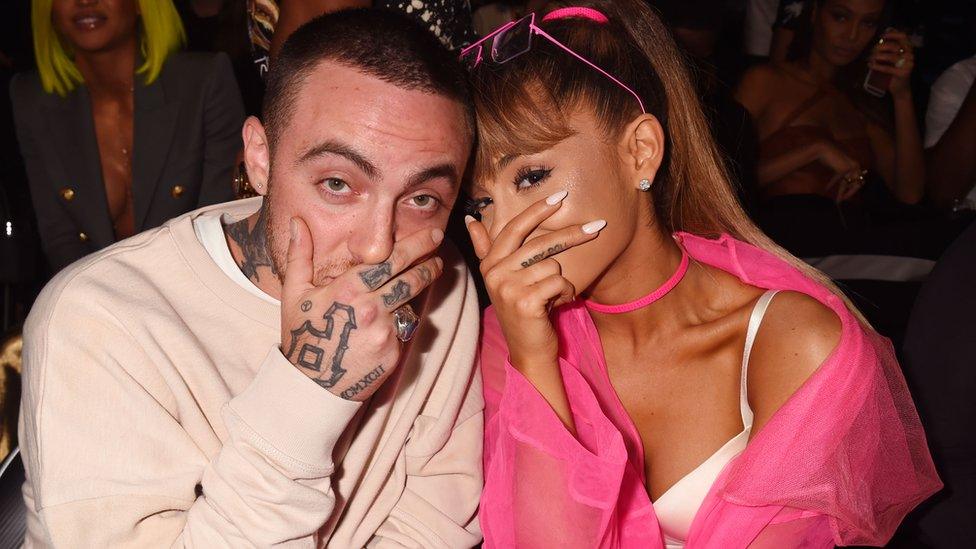Malcolm James McCormick, known professionally as Mac Miller, was an American rapper, producer, and songwriter who died tragically at age 26 on September 7, 2018, from an accidental drug overdose. His death shocked fans and the music industry, as he was at a creative peak with the release of his fifth studio album, Swimming, just a month earlier. Below is a detailed summary of the events surrounding his death, drawn from available sources and critically examined for clarity.

Background and Context
Mac Miller emerged from Pittsburgh’s hip-hop scene in 2007, gaining fame with his 2010 mixtape K.I.D.S. and his 2011 debut album, Blue Slide Park, which topped the Billboard 200—a rare feat for an independent artist. His music evolved from “frat rap” to introspective, jazz-inflected work addressing mental health, addiction, and heartbreak, as seen in albums like Watching Movies with the Sound Off (2013), The Divine Feminine (2016), and Swimming (2018). Miller was open about his struggles with substance abuse, particularly with lean (codeine-based cough syrup), cocaine, and prescription pills, which he referenced in his music and interviews. Despite attempts at sobriety, his addiction persisted, exacerbated by personal challenges, including his high-profile breakup with Ariana Grande in May 2018 and a DUI arrest shortly after.
The Days Leading Up to His Death
In the weeks before his death, Miller appeared to be in a positive state, at least outwardly. On August 31, 2018, he hosted his friend and collaborator Thundercat and Thundercat’s daughter, Sanaa, at his Studio City, California, home to celebrate her 12th birthday. They enjoyed dinner, sang “Happy Birthday,” and watched TV together, with Miller seeming happy and engaged. On September 3, he performed a promotional show at the Hotel Cafe in Hollywood, and on September 6, he spent the evening watching football with friends, a seemingly normal night. That same night, he posted an Instagram Story featuring his record player spinning the outro to “So It Goes” from Swimming, a track with lyrics like “Nine lives, never die … I’m still gettin’ high,” which some fans later interpreted as a haunting reflection on his mortality. He also tweeted excitedly about his upcoming Swimming tour, set to begin in October, indicating optimism about his future.
However, Miller was also grappling with addiction. On September 4, he texted Cameron James Pettit, a known drug contact, requesting oxycodone (“percs”), cocaine, and Xanax. Unbeknownst to Miller, Pettit allegedly supplied counterfeit oxycodone pills laced with fentanyl, a synthetic opioid 50 times more potent than heroin, sourced through Ryan Reavis and Stephen Walter. Miller’s assistant later reported that he had experienced “several recent slips” in sobriety, with the most recent being three days before his death.

The Day of His Death
On September 7, 2018, shortly before noon, Miller’s personal assistant and longtime sober coach found him unresponsive in a bedroom at his Studio City home in the 11600 block of Valleycrest Drive. The assistant called 911, reporting a cardiac arrest, and performed CPR until paramedics arrived. Miller was pronounced dead at the scene at 11:51 a.m. PDT. He was found in a “praying position,” kneeling with his face resting on his knees, with a small amount of white powdery substance (later identified as fentanyl), a bottle of alcohol, and prescription pills nearby. Reports noted that his home was “swept clean” of most drug evidence, possibly to obscure the extent of drug use, though a $20 bill with white residue remained.
Cause of Death
On November 5, 2018, the Los Angeles County Coroner’s Office released an autopsy report confirming that Miller died from “mixed drug toxicity” involving fentanyl, cocaine, and alcohol. The manner of death was ruled accidental, with fentanyl being the primary cause due to its potency. Investigators believe Miller snorted the fentanyl-laced counterfeit oxycodone pills, unaware of their contents, leading to the fatal overdose. His struggles with addiction were well-documented, but his mother, Karen Meyers, later stated in a victim impact statement that he would not have knowingly taken fentanyl, emphasizing his excitement for his future.

Legal Consequences
In September 2019, three men were arrested in connection with Miller’s death: Cameron James Pettit, Ryan Reavis, and Stephen Walter. They were charged with conspiracy and distribution of drugs resulting in death. Pettit allegedly sold Miller the fentanyl-laced pills, sourced from Reavis, who obtained them from Walter. In April 2022, Reavis was sentenced to nearly 11 years in prison after pleading guilty to distribution of fentanyl. In May 2022, Walter received a 17.5-year sentence after pleading guilty, though he claimed he was unaware the pills caused Miller’s death until after his arrest. Pettit’s case was still pending as of the latest updates, with a sealed plea deal reported.
Aftermath and Legacy
Miller’s death sent shockwaves through the music community. Fans held a vigil at Pittsburgh’s Blue Slide Park, and a tribute concert in Los Angeles launched the Mac Miller Circles Fund to support youth programs. His ex-girlfriend Ariana Grande, friends like Thundercat, and artists like Post Malone and G-Eazy expressed profound grief, with Grande referencing him as an “angel” in her song “Thank U, Next.” Miller’s estate released two posthumous albums, Circles (2020) and Balloonerism (2025), with Circles completing a narrative arc begun with Swimming. His music, marked by raw honesty about addiction and mental health, continues to resonate, sparking conversations about substance abuse in the industry.
Critical Perspective
While the coroner’s report and legal proceedings point to an accidental overdose, some fan discussions on platforms like Reddit suggest Miller’s lyrical references to death and drug use (e.g., “Shoulda died already” in Faces) hinted at a fatalistic awareness, though not necessarily intent. Others argue this oversimplifies his story, noting his documented efforts to overcome addiction and his excitement for his tour. The role of fentanyl, often laced into street drugs without users’ knowledge, underscores a broader opioid crisis, with Miller’s death highlighting the dangers of counterfeit pharmaceuticals. Blaming solely the dealers or Miller himself ignores systemic issues, including the music industry’s pressures and inadequate support for artists with addiction. Miller’s story is less about a single moment of recklessness and more about a complex interplay of personal struggles, societal failures, and a tragic encounter with a lethal drug.

Key Details
Date of Death: September 7, 2018, at 11:51 a.m. PDT
Location: Studio City, California, home
Cause of Death: Accidental overdose from fentanyl, cocaine, and alcohol
Key Events: Purchased fentanyl-laced counterfeit oxycodone from Cameron Pettit on September 4, 2018; found unresponsive by his assistant
Legal Outcome: Ryan Reavis (11 years), Stephen Walter (17.5 years), Cameron Pettit (case pending)
Legacy: Posthumous albums Circles and Balloonerism, ongoing fan tributes, and advocacy for addiction awareness
Mac Miller’s death remains a poignant loss, reflecting both his personal battles and the broader epidemic of fentanyl-related overdoses. His music endures as a testament to his talent and vulnerability.


